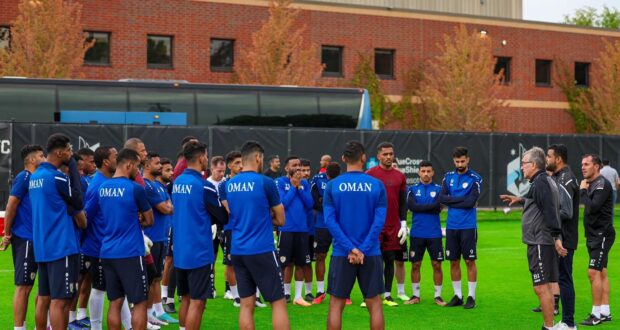FTC Challenges Court Ruling On Microsoft-Activision Deal

Table of Contents
The FTC's Arguments Against the Merger
The FTC's opposition to the Microsoft-Activision merger stems from serious concerns about anti-competitive practices and the potential for market dominance by Microsoft.
Concerns about Anti-Competitive Practices
The FTC argued that the merger would grant Microsoft an unfair competitive edge, potentially stifling innovation and harming consumers. Their key concerns included:
- Reduced competition in the console market: The merger would significantly increase Microsoft's market share, potentially pushing Sony's PlayStation and other competitors further behind. This could lead to less innovation and a less diverse gaming landscape.
- Potential for exclusivity: The FTC worried that Microsoft could make popular Activision Blizzard titles, such as Call of Duty, exclusive to Xbox consoles and its Game Pass subscription service. This would severely disadvantage PlayStation and other platform players.
- Limiting access to popular franchises: Restricting access to beloved franchises like Call of Duty, Warcraft, and Candy Crush could limit consumer choice and potentially drive up prices for those titles on competing platforms.
- Impact on game subscription services: The integration of Activision Blizzard's extensive game catalog into Xbox Game Pass could give Microsoft an insurmountable advantage in the subscription service market, further hindering competitors.
Evidence Presented by the FTC
To bolster their arguments, the FTC presented a range of evidence designed to showcase the anti-competitive nature of the merger. This included:
- Market share analysis: Data presented by the FTC likely demonstrated Microsoft's substantial increase in market share following the acquisition, illustrating its potential for dominance.
- Expert testimony: The FTC likely called upon expert witnesses, economists, and industry analysts to provide testimony supporting their claims of anti-competitive behavior.
- Internal Microsoft communications: The FTC likely scrutinized internal Microsoft documents to identify strategies and plans demonstrating the company's intent to leverage the acquisition to stifle competition.
The Court's Decision and Reasoning
Despite the FTC's concerns, the court ruled in favor of Microsoft, allowing the acquisition to proceed.
The Judge's Ruling
The judge's decision hinged on several key points, including:
- Rejection of the FTC's claims of market dominance: The court seemingly found the FTC's arguments regarding Microsoft's market dominance unconvincing.
- Assessment of evidence: The judge likely weighed the evidence presented by both sides and concluded that the merger wouldn't significantly harm competition. The specifics of this evaluation remain crucial to understanding the ruling.
- Emphasis on consumer benefits: The court may have considered potential benefits for consumers, such as access to a wider range of games through Game Pass, despite the risks.
Legal Precedents and Implications
This decision sets a significant precedent for future antitrust cases involving large tech mergers and acquisitions in the gaming industry.
- Antitrust law interpretation: The ruling provides a specific interpretation of antitrust laws in the context of the gaming industry, impacting future merger considerations.
- Influence on future decisions: Future merger reviews in the technology sector will likely consider this case as a crucial benchmark.
- Shifting legal landscape: This ruling could signify a shift in the legal landscape for technology mergers, potentially influencing how regulatory bodies assess future deals.
Potential Consequences and Future Outlook
The court's decision has broad-reaching implications for gamers, developers, and the future of the gaming industry.
Impact on Gamers
The long-term effects of the Microsoft-Activision merger on gamers remain uncertain, but several potential consequences exist:
- Potential for price increases: The reduced competition could lead to higher prices for Activision Blizzard games, especially on competing platforms.
- Impact on cross-platform gaming: The future of cross-platform gaming for Activision Blizzard titles is uncertain, and potential limitations could impact gamers.
- Potential for exclusive titles: The possibility of Activision Blizzard titles becoming Xbox exclusives could limit player choice and access for those on other platforms.
The FTC's Next Steps
The FTC has the option to appeal the court's decision, leading to a prolonged legal battle.
- Appeal process: The FTC's appeal would involve a higher court reviewing the initial decision and potentially overturning it.
- Impact on Microsoft and Activision Blizzard: An appeal will create further uncertainty for Microsoft and Activision Blizzard and may delay the full integration of the two companies.
- Potential outcomes: An appeal could result in the merger being blocked, leading to a complete reversal of the current situation.
Conclusion
The FTC's challenge to the Microsoft-Activision deal highlights the intricacies of large-scale mergers in the dynamic gaming industry. The court's decision, while permitting the acquisition, does not resolve the concerns about potential anti-competitive practices. The FTC's potential appeal and its outcome will be instrumental in shaping the future of gaming. Stay informed about further developments in this ongoing saga of the FTC Challenges Microsoft-Activision Deal and the effects it has on the gaming market. Continue checking back for updates on the evolving impacts of this significant merger on the gaming world.

Featured Posts
-
 Get Ready For Spring Streaming Jellystone And Pinata Smashling On Teletoon
May 22, 2025
Get Ready For Spring Streaming Jellystone And Pinata Smashling On Teletoon
May 22, 2025 -
 Abn Amro Hogere Huizenprijzen Verwacht Ondanks Dalende Rente
May 22, 2025
Abn Amro Hogere Huizenprijzen Verwacht Ondanks Dalende Rente
May 22, 2025 -
 Quiz Loire Atlantique Testez Vos Connaissances Sur L Histoire La Gastronomie Et La Culture
May 22, 2025
Quiz Loire Atlantique Testez Vos Connaissances Sur L Histoire La Gastronomie Et La Culture
May 22, 2025 -
 Thlatht Njwm Jdd Yndmwn Ila Mntkhb Amryka Tht Qyadt Bwtshytynw
May 22, 2025
Thlatht Njwm Jdd Yndmwn Ila Mntkhb Amryka Tht Qyadt Bwtshytynw
May 22, 2025 -
 Real Madrid In Yeni Teknik Direktoerue Arda Gueler E Etkisi Ne Olacak
May 22, 2025
Real Madrid In Yeni Teknik Direktoerue Arda Gueler E Etkisi Ne Olacak
May 22, 2025
